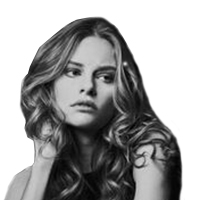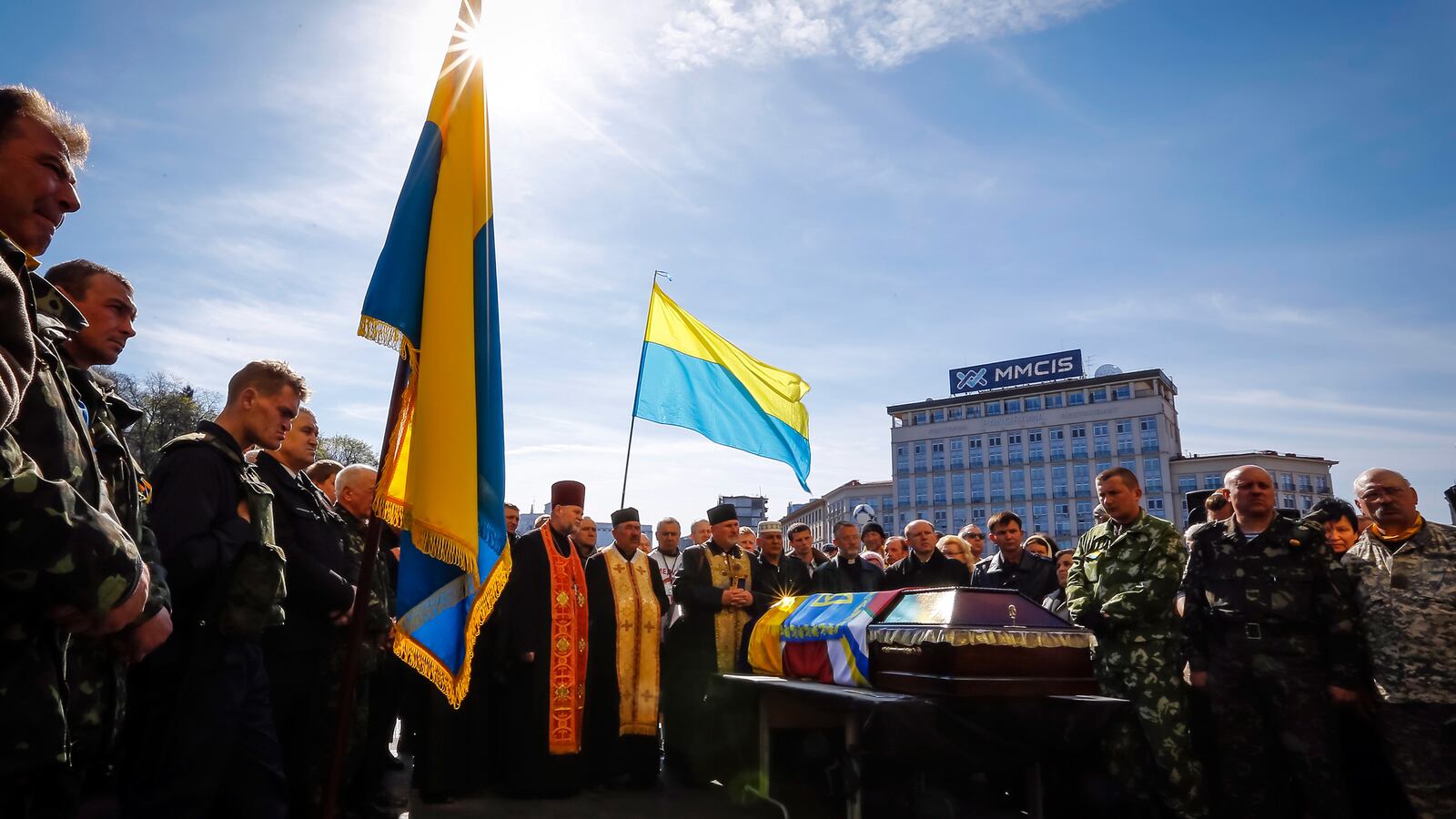KIEV, Ukraine—The lingering smells of the aftermath of revolution tinge the air: burning trash, the exhaust of diesel generators, the cabbage soup of communal kitchens. The smells waft through the shantytown of tents and tires known as the Maidan, the main square in Kiev.

The first things I saw were a large trade union building which was completely scorched and missing window panes, a McDonald’s restaurant, and a sea of people protected by tires joining in the weekly Sunday ceremony of remembrance for the 100-plus killed in the Ukrainian revolution that drove President Victor Yanukovych from office.
As you walk through the Maidan, you notice parts of the ground that normally would be covered in paving stones are bare. The stones had been pulled up to create ad-hoc fortifications around the Maidan. Men stare at you quietly as you pass through, sizing you up, and taking long careful drags from their cigarettes. Some wear uniforms, some are topless, and some are wearing pedestrian clothes. Old women in smart trench coats and floral scarves around their heads place flowers in the tires, and light candles at the memorial sites as they whisper solemn prayers.
The tents are military grade, and usually surround an enclosure. Within the enclosure, men sit on dirty couches, either improvised out of other materials or actual literal couches. Some have built barbeques out of oil drums on which they grill sausages and chicken. Behind these tent enclosures, Zara and Adidas and chocolate shops keep their stores open—business will continue as usual. Impromptu kitchens have been set up around the outer regions of the Maidan, where hot soup and bread is served to rallygoers at no cost. There are signs all over Kiev that read “Need Wood” in English. There are even more posters of Putin drawn as Hitler.
In the center of the Maidan is a large metal cone structure, decorated with posters, which are either anti-Putin or nationalist, and are commemorative to those who were shot by snipers. There are also fading posters for those who were missing, and who are sadly now known to be dead.
Shop windows around the square show the shock of rubber bullets. A mound of flowers to those killed by real bullets is heaped in a memorial on the road to the parliament.
Posters encouraging peace decorate the streets, a nice juxtaposition against the loud, nationalist speeches coming from the center of the square.
As I stood by the monument to those who were shot first—from the day the snipers began shooting the protestors, and as I later learned, also those who tended to the wounded and fallen—an old man approached me, after apparently hearing me speak English to my companion. We began to talk, and I asked him how he felt about the future.
“The day I was the most happy was 2/22,” he smiled at me and adjusted his blue and yellow soccer scarf and headed towards the center of the square. For these people, it is merely a lull in the battle. The Russians have seized Crimea. Yanukovych is ousted, and serious moves have been made for the Ukraine to join the E.U. However, there are still some things to consider. Crimea remains annexed, Putin has suffered no real penalties and there is always the threat of the worst has yet to come. After all, the barricades are still up—although the tires are now decorated with carnations and sunflowers—and men are still wearing military uniforms. The guns may have been seized, but the fortifications still remain.
Upon returning home from my trip to Kiev, all my friends and colleagues asked me what I thought was going to happen over there. My answer: maps are going to look very different in a few years. Although the spirit of the Ukrainian people is hopeful, the reality seems bleak.
I had an off-the-record dinner with a Ukrainian senior level official. He told me that the Ukrainian spirit had been severely humiliated. The men in the Maidan were not necessarily still there because they hoped to defend Kyiv from Russian tanks, but because they simply could not yet return to their villages and explain to their friends and families that despite everything, there was still nothing. The feeling in the Maidan is very standstill and unsure. The story is not yet over.
The Ukrainian acting government is calling for peaceful demonstrations, and quietly withdraws its troops from areas with growing Russian influence. There are more posters in the Maidan calling for peace than there are posters calling for war. A pastel poster showing a light switch; above the switch is written: “A simple choice: War?” The switch has been pushed up in the lights on direction, where NO is written and behind it is a Ukrainian flag. Below, is written ON and behind those letters is a Russian flag. Grenades drawn on a red background, carefully locked with yellow stenciled locks. “We don’t want war” is written beneath the grenades. All of the posters that mention war feature strong Russian themes in color and in wording. They’re also all in English.
Why English? Not because the authors of the poster expect many Americans to walk through Kiev. Quite the contrary, our presence was a surprise (although, it seemed as though it was a welcome one). For Ukrainians who seek a future in Europe, rather than under Russia, English is more than a language: it’s a glimpse of the future they want.
However, these form a contrast to the posters meant only for Ukrainians. I saw a poster the size of a flag in the Maidan with a picture of Putin. Large Ukrainian letters were next to it, and graffiti covered the background. I posted the picture on Facebook asking for a translation. A friend informed me that it read: anti-Christ, murderer, piece of shit and kike.
There is something to be suspicious of on the Ukrainian side. The new government is not yet as transparent as the people necessarily would like, despite their desire to join the E.U. The Ukraine is also not a well organized place, members of parliament are late for meetings and sometimes disrespectful of the press. The senior-level official I met stated that although in the past he had been very opposed to joining NATO, now that the occasion had arose, he was very excited at the idea of starting the process.
“Putin has been planning this for years,” he added. Too bad they are realizing this now, they might have sung a different tune at an earlier time.






